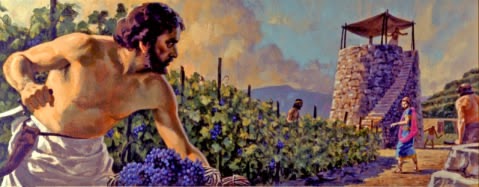THIRTIETH
SUNDAY IN ORDINARY TIME
Ex.22: 20 – 26/ Ps. 18:/ 1 Thes.1:5-10/ Mt. 22: 34 – 40
What is
love? A simple question yet a very complicated reality. No one in this world
even from among the great minds has successfully captured its meaning. Love is
complicated because each human being has his own answer, his own experience.
True
enough, Jesus was also aware of this question even during his time. His
ancestors have defined what love was. Yet in our Gospel today, Jesus gives a
direct answer to the question, What is love? Love is the total self –giving of
the lover to his beloved. When our Lord said, “You shall love the Lord, your
God, with all your heart, with all yours soul, and with all your mind. And you
shall love your neighbor as yourself.” He was simply telling the people what
true love is – selfless and not selfish, all and not partial. And this love was
perfectly seen at Calvary and completed at the empty tomb.
St.
Paul in our second reading today affirms the Thessalonians of their ministry. “For
from you the word of the Lord has sounded forth not only in Macedonia and in
Achaia, but in every place your faith in God has gone forth, so that we have no
need to say anything.” This is another characteristic of love. Love is a
mission. If love is the total self – giving of the lover to his beloved then it
is primarily missionary! There is a movement from the inside to the outside,
from the self to the other. It is not love if it remains hidden, if it is kept
alone and in isolation. Jesus did not remain in heaven. He became man. He did
not hide in Nazareth. He preached the Kingdom, cured the sick, feed the hungry,
and raised the dead in both Jewish and Gentile lands.
Since
love is a mission, to whom then shall we reach out? Human as we are we only
love those who are lovable; those who share our principles; and those who
always do us a favor. The unlovable, the indifferent, and the traitor have no
place in our loving. However, our first reading today from the book of Exodus
tells us of the recipients of our loving, the goal of our mission. “You shall
not oppress an alien. You shall not wrong any widow or orphan. You shall not
act like an extortioner to your poor neighbors.” As mentioned earlier, our
loving should be selfless and not selfish, all and not partial. Thus, the
recipients of our love should also include and even give importance to the last,
least, and lost in society. Our love should embrace our enemies, those who all
the while have loved us but in the end betrayed us.
And
just as going to a mission land involves pain and suffering, a missionary kind
of loving also involves pain and suffering. It is not easy to love that person
who has broken his promise. It does not give us comfort to love that person who
has hurt us not only once but a hundred times. Missionary loving is always
painful because as you give your all to your beloved you are never given an
assurance that he/she will also give his/her all. Thus, we draw inspiration
from Our Lord who has given his all and continues to give his self to us even
until today; no matter how unfaithful and ungrateful we are. God’s love like the
sun continues to brighten our sad days and gives warmth to our cold existence.
What is
love? A simple question yet a very complicated reality. No one in this world
even from among the great minds has successfully captured its meaning. Yet
every time we think of God even for a split second amidst a very busy day, that
is love. Every time we tap the back of a crying brother, that is love. Every
time we hold on to our promises and remain honest to our neighbor, that is
love. And every time we forget ourselves for the sake of the other, that is
love, Christian love.

